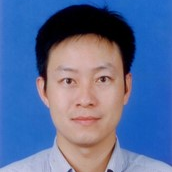Materials and Processing for Lithium-Ion Batteries and Beyond
A special issue of Processes (ISSN 2227-9717).
Deadline for manuscript submissions: closed (31 December 2022) | Viewed by 3268
Special Issue Editors
Interests: energy storage materials; metal-organic frameworks; lithium metal batteries; lithium-oxygen/lithium-sulfur/lithium-selenium batteries; lithium-ion batteries; solid-state batteries; multiscale characterization; multiscale modeling, including ab initio calculations and molecular dynamics simulations
Interests: next-generation lithium batteries (lithium–sulfur and lithium–selenium batteries); electrolyte engineering; solid-state electrolytes; silicon-based anodes; nanomaterials
Special Issues, Collections and Topics in MDPI journals
Interests: energy storage materials; metal-organic frameworks; lithium-ion batteries; sodium-ion batteries; solid-state batteries; nonferrous metals resources
Interests: electrode materials for Li-ion battery; high-entropy electrode materials; Li–S battery; supercapacitor; solid-state electrolyte; nanomaterials synthesis; functional ceramics
Special Issue Information
Dear Colleagues,
Lithium-ion batteries have revolutionized energy storage, from consumable electronics to electric vehicles to grid energy storage. After three decades of development, lithium-ion batteries are approaching theoretical limits of energy density and facing increasing raw material costs. However, the demand for high-energy, safe, and low-cost batteries continues to increase, triggering research on high-energy lithium-ion batteries and beyond. Over the past decade, significant advances have been made in this field. The Special Issue on “Materials and Processing for Lithium-Ion Batteries and Beyond” will provide a timely reference for related research.
This Special Issue aims to provide a platform for the publication of the latest research on materials and processing for lithium-ion batteries and beyond. As such, we are inviting the submission of high-quality papers, including original research articles and reviews. Topics include, but are not limited to:
- High-capacity and high-voltage cathode materials, such as Li-rich/Ni-rich layered oxides;
- High-capacity alloy-based anode materials, such as Si and Sn;
- Design of dendrite-free lithium metal anodes;
- Nonflammable and high-voltage electrolytes;
- Solid-state electrolytes with high ionic conductivity and great stability and interfacial compatibility with electrode materials, such as sulfides, oxides, and polymers;
- Design of beyond lithium-ion batteries, such as Li–O2/ Li–S/ Li–Se/ Li–CO2 batteries;
- Advanced and in situ/operando characterizations of battery materials, such as in situ TEM and in operando XRD;
- Multiscale modeling of battery materials, such as density-functional theory (DFT) calculations, molecular dynamics (MD) simulations, and finite element modeling;
- Low-cost and green processing and manufacturing for lithium-ion batteries and beyond;
- Recycling of spent battery materials.
Dr. Xiahui Zhang
Dr. Panpan Dong
Prof. Dr. Junchao Zheng
Dr. Shi-Xi Zhao
Guest Editors
Manuscript Submission Information
Manuscripts should be submitted online at www.mdpi.com by registering and logging in to this website. Once you are registered, click here to go to the submission form. Manuscripts can be submitted until the deadline. All submissions that pass pre-check are peer-reviewed. Accepted papers will be published continuously in the journal (as soon as accepted) and will be listed together on the special issue website. Research articles, review articles as well as short communications are invited. For planned papers, a title and short abstract (about 100 words) can be sent to the Editorial Office for announcement on this website.
Submitted manuscripts should not have been published previously, nor be under consideration for publication elsewhere (except conference proceedings papers). All manuscripts are thoroughly refereed through a single-blind peer-review process. A guide for authors and other relevant information for submission of manuscripts is available on the Instructions for Authors page. Processes is an international peer-reviewed open access monthly journal published by MDPI.
Please visit the Instructions for Authors page before submitting a manuscript. The Article Processing Charge (APC) for publication in this open access journal is 2400 CHF (Swiss Francs). Submitted papers should be well formatted and use good English. Authors may use MDPI's English editing service prior to publication or during author revisions.
Keywords
- lithium-ion batteries
- beyond lithium-ion batteries
- high-energy density
- high voltage
- high capacity
- solid-state electrolytes
- material processing
- material characterization
- battery modeling
- battery manufacturing
- battery recycling
Benefits of Publishing in a Special Issue
- Ease of navigation: Grouping papers by topic helps scholars navigate broad scope journals more efficiently.
- Greater discoverability: Special Issues support the reach and impact of scientific research. Articles in Special Issues are more discoverable and cited more frequently.
- Expansion of research network: Special Issues facilitate connections among authors, fostering scientific collaborations.
- External promotion: Articles in Special Issues are often promoted through the journal's social media, increasing their visibility.
- e-Book format: Special Issues with more than 10 articles can be published as dedicated e-books, ensuring wide and rapid dissemination.
Further information on MDPI's Special Issue polices can be found here.








